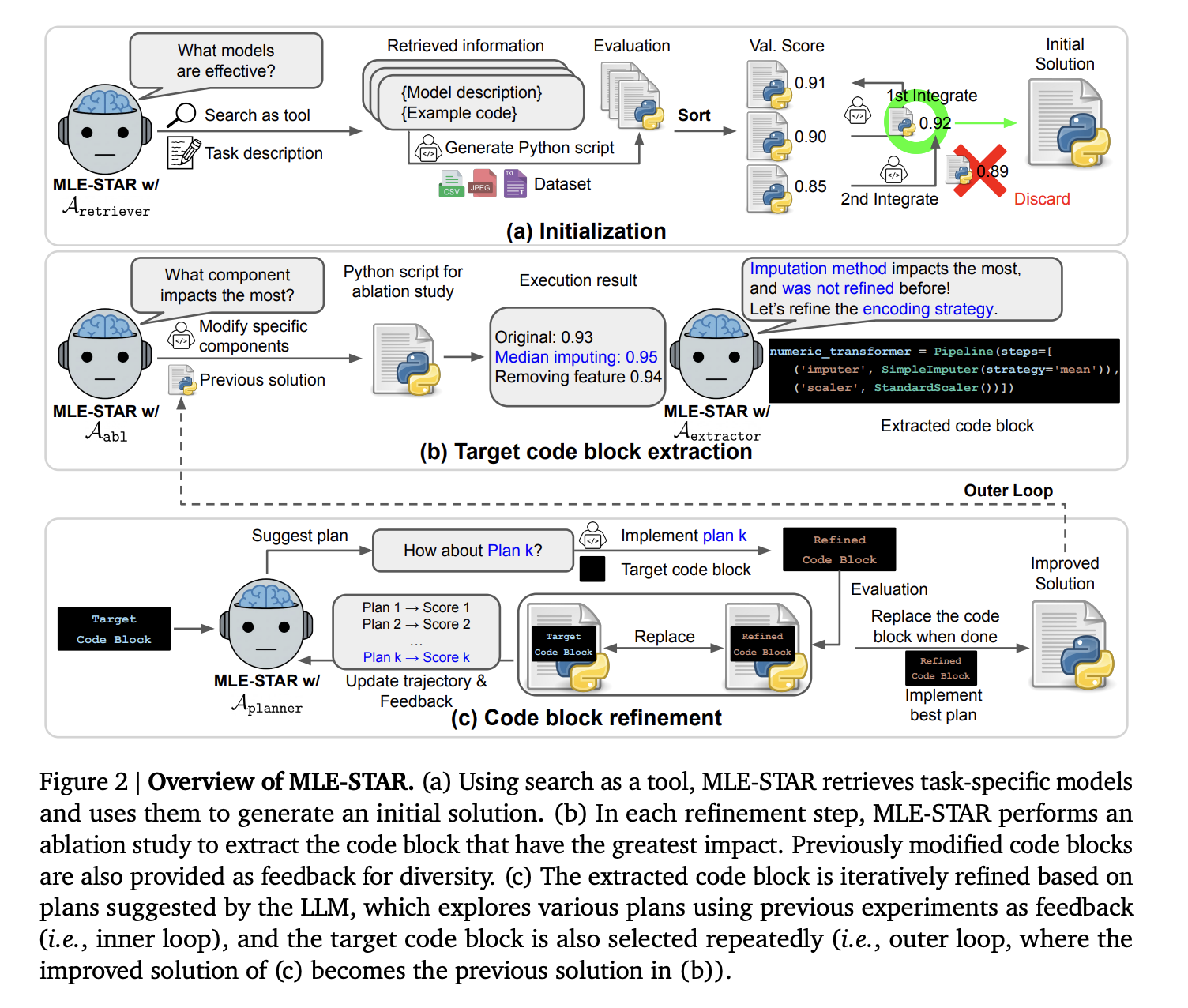
Google AI Unveils MLE-STAR: A Revolutionary Agent for Automating Machine Learning Engineering
Google Cloud researchers have introduced MLE-STAR (Machine Learning Engineering via Search and Targeted Refinement), a cutting-edge agent system designed to automate complex machine learning pipeline design and optimization. This innovative tool leverages advanced capabilities to enhance the performance of various machine learning engineering tasks, significantly surpassing previous autonomous ML agents and even human baseline methods.
The Challenge of Machine Learning Engineering
Despite the advancements made by large language models (LLMs) in code generation and workflow automation, existing ML engineering agents face significant challenges:
- Overreliance on LLM Memory: Many agents tend to default to familiar models, such as scikit-learn for tabular data, neglecting more advanced, task-specific approaches.
- Coarse Iteration Techniques: Previous agents typically modify entire scripts at once, lacking the depth needed for targeted exploration of essential pipeline components, including feature engineering, data preprocessing, and model ensembling.
- Poor Error and Leakage Handling: The code generated by these systems is often susceptible to bugs, data leakage, or the omission of necessary data files.
Core Innovations of MLE-STAR
MLE-STAR offers several key advancements that set it apart from earlier solutions:
- Web Search–Guided Model Selection: This feature allows the agent to access a vast array of models and methods, improving its ability to select the most effective approach for specific tasks.
- Targeted Code Refinement: MLE-STAR employs sophisticated techniques to refine code with precision, addressing the limitations of previous agents.
- Robust Checking Modules: The system includes comprehensive error-checking capabilities to ensure the reliability and accuracy of generated code.
Asif Razzaq from MarkTechPost highlights that MLE-STAR's performance marks a significant leap forward in the field of machine learning engineering. Its ability to automate complex tasks not only enhances efficiency but also allows data scientists and engineers to focus on more strategic aspects of their projects.
With ongoing improvements in AI technology, tools like MLE-STAR are poised to transform the landscape of machine learning, making it more accessible and efficient for professionals across various industries.
Rocket Commentary
The introduction of MLE-STAR by Google Cloud is indeed a promising development in the realm of machine learning engineering, yet it raises critical questions regarding accessibility and the ethical deployment of such powerful technologies. While this tool demonstrates superior performance compared to previous models and human benchmarks, it also highlights the persistent challenge of overreliance on established frameworks, potentially stifling innovation in tackling unique problems. As we embrace automation in ML pipeline design, it is imperative that we ensure these advancements democratize access to machine learning capabilities rather than restrict them to those with extensive resources. The industry's focus must shift toward enabling all users—regardless of technical expertise—to harness the transformative power of AI responsibly and ethically, thereby fostering a more inclusive technological landscape.
Read the Original Article
This summary was created from the original article. Click below to read the full story from the source.
Read Original Article